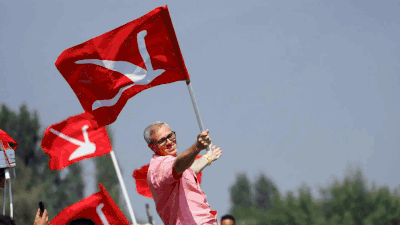- News
- India News
- J&K polls: Stage set for phase 2; Omar Abdullah, Ravinder Raina among key candidates in fray
Trending
J&K polls: Stage set for phase 2; Omar Abdullah, Ravinder Raina among key candidates in fray
The second phase of Jammu and Kashmir elections is set for Wednesday across 26 constituencies with over 13,000 polling personnel at 3,500 stations. Key political figures like Omar Abdullah and Ravinder Raina are contesting. Enhanced security measures are in place due to past terror attacks. Over 2.5 million voters are expected to participate.

Key political figures in fray
Heavyweights from Jammu and Kashmir’s politics are contesting in this phase.

Heightened security in terror-affected areas
Security is a major concern in the districts of Rajouri, Poonch, and Reasi, areas that have experienced multiple terror attacks since 2021. Given the proximity to the Line of Control (LoC), extensive security measures have been deployed to ensure a peaceful polling process. The security strategy includes a comprehensive deployment of local police forces and central paramilitary units.
For the first time, the Central government will bring nearly 20 foreign diplomats to Jammu and Kashmir as election observers. These diplomats will represent countries from ASEAN embassies, including the United States, France, Germany, Singapore, the Philippines, and Malaysia. This delegation marks the third visit by foreign envoys since the revocation of Article 370 in August 2019.
Over 2.5 million voters to decide results
More than 2.5 million voters are expected to cast their ballots in this phase. Rajouri district has the highest number of candidates, with 34 vying for five key seats. Poonch and Reasi are also expected to see strong voter turnout, continuing the trend of high participation in these regions. In previous elections, turnout in these areas exceeded 80%, despite security concerns.
In a bid to enhance transparency, the Election Commission has introduced webcasting at all 3,500 polling stations. Authorities have also set up special arrangements for female and transgender voters, ensuring an inclusive electoral process.
The third and final phase of the Jammu and Kashmir elections is scheduled for October 1, with vote counting set to take place on October 8.
End of Article
FOLLOW US ON SOCIAL MEDIA











